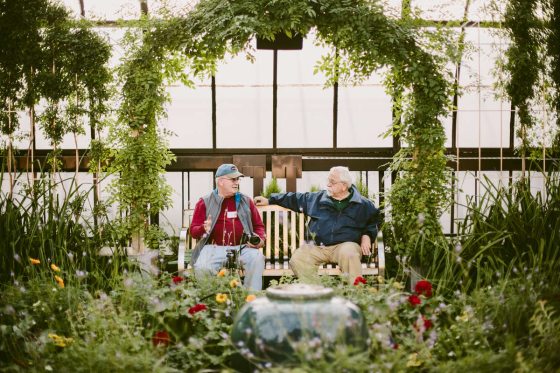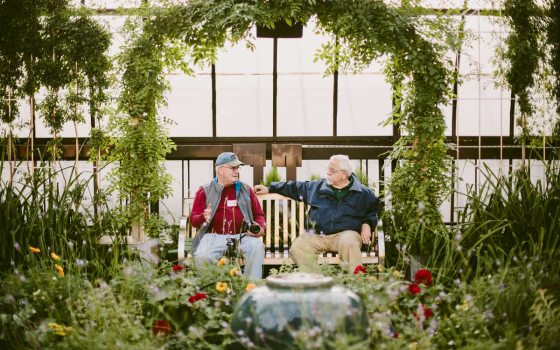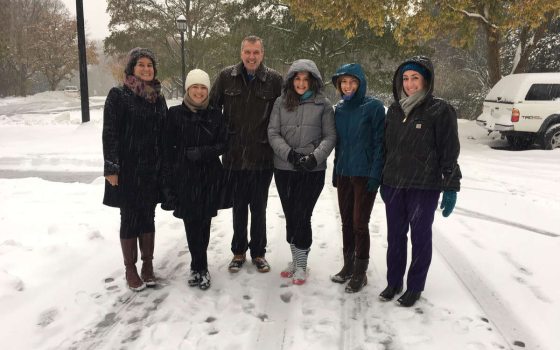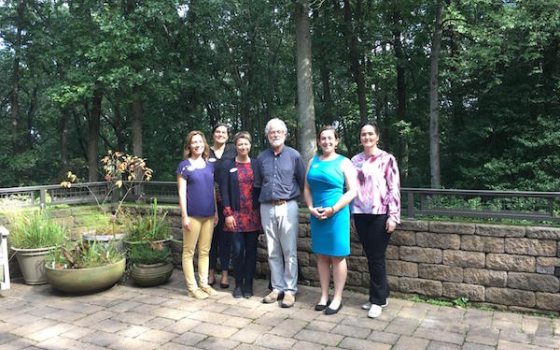The Longwood Fellows program is fortunate to be situated within the thriving cultural community of the Greater Philadelphia area. The aphorism “a rising tide lifts all boats” is an apt metaphor for the support network that exists for the thousands of cultural organizations in the region.
Longwood Gardens is a member of the Greater Philadelphia Gardens network, which promotes more than 30 gardens within America’s Garden Capital. Longwood is also one of the more than 400 members of the Greater Philadelphia Cultural Alliance, the region’s premier leadership, advocacy, and collaborative marketing organization for arts and culture, with members ranging from zoos and gardens to performing arts and museums. This diverse member network generates more than $4.1 billion in economic impact for the region.
The Longwood Fellows had the pleasure of meeting with Greater Philadelphia Cultural Alliance’s Executive Director Maud Lyon, Vice President of Development Kelli Paul, and Associate Director of Development and Board Liaison Taja Jones. Lyon describes the role of the Cultural Alliance as the “wind under the wings” of the arts and culture sector. They share their support through research reports, grantmaking, professional development, marketing, and audience development. It’s exciting to see the growing trend of public gardens, zoos, theater, and arts organizations joining forces to promote each other, as well as collaborate and bring awareness to the impact, vitality, and benefits that art and culture bring to our communities.
During our visit, the Fellows discussed research that the Cultural Alliance conducted, after recent data revealed that individual giving to arts and culture organizations is down 9.7 percent nationally and individual giving is down 12.7 percent in the Philadelphia region. In response, The Cultural Alliance acted quickly to conduct research on what motivates individual donors to give (or not give) to arts and culture organizations.
Lyon believes, “If we could understand how donors think and where culture fits in their priorities, we could find creative ways to approach them.” The Cultural Alliance has shared the results of the study, titled Beyond the Check: A Roadmap for Engaging Individual Donors, not only with members, but has also made it public on their website.
The report outlines the major themes and recommendations gleaned from the study on how arts and culture organizations can engage new donors, with four key themes that developed from the research:
-
Donors support causes about which they are passionate.
These causes most frequently include education, religion, human services, and social justice. However, there is insufficient awareness of how these issues intersect with arts and culture.
-
Donors are not monolithic.
Differences in generation, race, gender, and sexual orientation drive the issues donors care about, their approaches to giving, and ways they engage with nonprofits.
-
Donors respond to meaningful engagement beyond their checkbooks.
Personal connections and ways to contribute time and expertise are important. This is especially important among high-net-worth individuals and millennials.
-
Donors invest in transparent organizations.
They look for organizations where they feel confident that there is strong leadership and sound financial management.
The study recommends emphasizing not only the economic benefits, but the social and community impact of our organizations. For public gardens, this might mean emphasizing the mental health benefits of gardens and nature, as well as both individual and community benefits and impacts on quality of life. Gardens can also emphasize the educational aspects of our work and develop strategies and capacity to engage potential donors in meaningful ways, connecting donors’ skills and ideas to a garden’s mission and work.

The Greater Philadelphia Cultural Alliance is a force for innovation and a key asset for the greater Philadelphia region. The opportunity to hear firsthand about the many ways the Alliance is cultivating support and demonstrating the value of arts and culture was very inspiring. The continued access to thought leaders throughout the Fellows Program continues to be an exceptional and treasured aspect of our Fellows curriculum.


